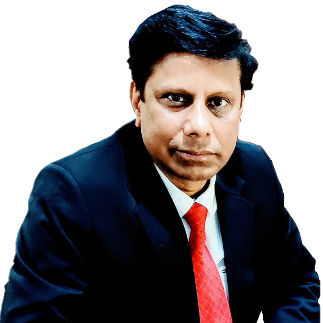Symptoms of Myocardial Infarction Explained
Understand the key symptoms of a myocardial infarction (heart attack), including chest pain, shortness of breath, and other warning signs for timely medical intervention.


Symptoms of Myocardial Infarction Explained
A myocardial infarction (MI), commonly known as a heart attack, is a serious medical emergency that occurs when blood flow to a part of the heart is blocked for a long enough time to cause damage to the heart muscle. Recognising the symptoms early can save lives, as timely treatment is crucial.
This article will help you understand the common and less common symptoms of a heart attack, what to do if you or someone else experiences them, and how to reduce the risk of heart disease.
What Are the Common Symptoms of a Heart Attack?
Most people associate heart attacks with sudden, crushing chest pain. While chest pain is a key symptom, heart attacks can also present in different ways, especially in women, older adults, and people with diabetes.
Here are the most common symptoms:
1. Chest Pain or Discomfort
- Often described as pressure, tightness, heaviness, or squeezing in the centre or left side of the chest.
- The pain may last for several minutes or come and go.
- It may feel like indigestion or heartburn but is more severe.
2. Pain in Other Areas of the Body
- Pain may spread to the left arm, jaw, neck, back, or stomach.
- Some people experience only arm or jaw pain without chest discomfort.
3. Shortness of Breath
- Difficulty breathing, even without chest pain.
- May occur before or along with chest discomfort.
4. Cold Sweat, Nausea, or Dizziness
- Sudden cold sweats without physical exertion.
- Feeling lightheaded or faint.
- Nausea or vomiting, especially in women.
5. Fatigue or Weakness
- Unexplained extreme tiredness, sometimes days before the heart attack.
- Feeling weak or exhausted without reason.
Less Common Symptoms
Women, older adults, and people with diabetes may experience atypical symptoms, which can delay diagnosis. These include:
- Stomach pain (mistaken for indigestion).
- Sudden extreme fatigue (not related to exertion).
- Flu-like symptoms (body aches, chills).
- Anxiety or a feeling of doom.
If you or someone around you has these symptoms, do not ignore them—seek medical help immediately.
What Should You Do If You Suspect a Heart Attack?
A heart attack is a medical emergency. Follow these steps:
1. Call Emergency Services (108 or local emergency number) immediately.
- Do not wait to see if symptoms go away.
- Do not drive yourself to the hospital.
2. Chew an Aspirin (if available and not allergic).
- Aspirin helps thin the blood and can reduce damage.
3. Stay Calm and Rest.
- Sit or lie down while waiting for help.
4. If the Person Becomes Unresponsive, Start CPR.
- If trained, perform chest compressions (100-120 per minute).
Consult Top Specialists
What Causes a Heart Attack?
A heart attack occurs when one or more of the coronary arteries (blood vessels supplying the heart) become blocked. The blockage is usually due to:
- Plaque Buildup (Atherosclerosis): Cholesterol deposits narrow the arteries over time.
- Blood Clot: A clot can form on the plaque, completely blocking blood flow.
- Coronary Artery Spasm: Temporary tightening of the artery, reducing blood flow.
Risk Factors You Can Control:
- Smoking
- High blood pressure
- High cholesterol
- Diabetes
- Obesity & unhealthy diet
- Lack of exercise
- Excessive stress
Risk Factors You Cannot Control:
- Age (risk increases after 45 for men, 55 for women)
- Family history of heart disease
- Gender (men are at higher risk, but women’s risk increases after menopause)
How Can You Reduce Your Risk?
Preventing a heart attack involves healthy lifestyle choices:
1. Eat a Heart-Healthy Diet
- More fruits, vegetables, whole grains, nuts, and fish.
- Less fried foods, processed sugars, and red meat.
- Limit salt and trans fats.
2. Stay Active
- Aim for 30 minutes of moderate exercise (walking, cycling) most days.
3. Quit Smoking & Limit Alcohol
- Smoking damages blood vessels—quitting reduces risk significantly.
- Alcohol in moderation (1 drink/day for women, 2 for men).
4. Manage Stress & Sleep Well
- Practice deep breathing, yoga, or meditation.
- Get 7-8 hours of sleep per night.
5. Regular Health Check-ups
- Monitor blood pressure, cholesterol, and blood sugar.
- If you have diabetes or hypertension, follow your doctor’s advice strictly.
When to See a Doctor?
If you have risk factors or experience unexplained chest discomfort, fatigue, or shortness of breath, consult a doctor. Early detection can prevent complications.
If you’re concerned about your heart health, you can schedule a consultation or diagnostic tests through Apollo 24|7. Early screening can help detect problems before they become serious.
Conclusion
A heart attack can happen suddenly, but knowing the symptoms and acting fast can save lives. If you or someone around you experiences chest pain, shortness of breath, or unexplained fatigue, do not ignore it—seek emergency help immediately.
By making healthy lifestyle choices, you can reduce your risk and protect your heart. Stay informed, stay proactive, and take care of your heart—it’s the only one you’ve got!
Consult Top Specialists
Consult Top Specialists

Dr. Dhanraj K
General Physician/ Internal Medicine Specialist
25 Years • MBBS, MD Internal Medicine - Osmania Medical College, Hyderabad
Hyderabad
Apollo Hospitals Jubilee Hills, Hyderabad
(425+ Patients)

Dr. Vivek D
General Physician
4 Years • MBBS
Bengaluru
PRESTIGE SHANTHINIKETAN - SOCIETY CLINIC, Bengaluru

Dr Syed Mateen Pasha
General Physician
2 Years • MBBS
Bengaluru
PRESTIGE SHANTHINIKETAN - SOCIETY CLINIC, Bengaluru

Dr. Ajay K Sinha
General Physician/ Internal Medicine Specialist
30 Years • MD, Internal Medicine
Delhi
Apollo Hospitals Indraprastha, Delhi
(200+ Patients)

Dr. Mounika
General Physician/ Internal Medicine Specialist
4 Years • MBBS, MD (General Medicine)
Mahabub Nagar
SVS HOSPITAL, Mahabub Nagar